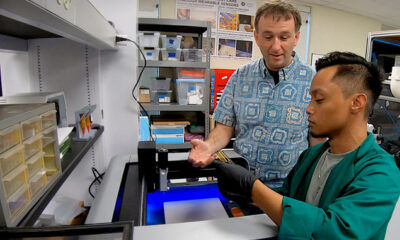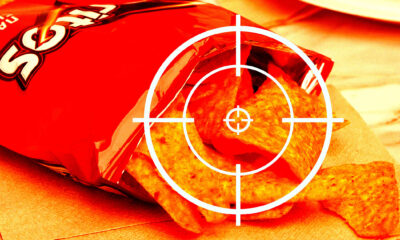Science
NYUAD Develops SPIRAL Implant for Precision Drug Delivery in Brain

Researchers at NYU Abu Dhabi have developed a groundbreaking brain implant known as SPIRAL, designed to deliver medication with unprecedented precision to multiple regions of the brain. This innovation aims to significantly enhance treatment options for neurological disorders, which often originate from specific areas of dysfunction that are difficult to target with existing methods.
The human brain consists of billions of neurons organized into specialized regions. Treating conditions like glioblastoma and epilepsy poses a challenge due to the complex nature of these disorders. Traditional implants typically deliver drugs from only one or two points, leading to uneven distribution, which can diminish therapeutic effectiveness and increase side effects.
Transforming Drug Delivery
The SPIRAL implant is a thin, flexible tube featuring strategically spaced openings along its length. This design allows for a controlled release of medication across larger areas of brain tissue. Khalil Ramadi, Assistant Professor of Bioengineering at NYUAD, highlighted the critical advantage of SPIRAL, stating, “Our current tools for targeting these areas are limited. SPIRAL allows us to reach several regions at once without adding extra risk, which could change how we deliver therapy.”
Extensive laboratory research and advanced computer modeling have confirmed SPIRAL’s safety and effectiveness. Co-lead author Batoul Khlaifat explained that the design resolves a significant issue seen in existing brain implants, which typically limit drug delivery to just a few points. The new device enables a more even and expansive distribution of drugs while remaining minimally invasive.
A notable finding from the research indicates that SPIRAL does not lead to increased inflammation compared to standard devices, suggesting its suitability for long-term use in treatment. PhD candidate Mahmoud Elbeh emphasized the potential of SPIRAL, particularly in cases where direct drug delivery into the brain is necessary to bypass the blood-brain barrier. “Our helical form with tuned, evenly spaced outlets lets us cover more tissue from one insertion,” he noted.
Broader Applications and Future Potential
The implications of the SPIRAL implant extend beyond drug delivery. Researchers believe it could be adapted for various therapies, including electrical stimulation, which may benefit patients suffering from conditions such as Parkinson’s disease and epilepsy.
The findings from this innovative study have been published in the Journal of Neural Engineering, paving the way for future advancements in neurological treatment. The development of the SPIRAL implant represents a significant leap forward in addressing one of the most challenging aspects of neurological therapies: precise targeting of affected brain regions.
As research continues, the potential for SPIRAL to shape the future of neurological treatment remains promising, highlighting the importance of ongoing innovation in medical technology.
-

 Science2 months ago
Science2 months agoResearchers Launch $1.25M Project for Real-Time Hazard Monitoring in Hawaiʻi
-

 Science4 months ago
Science4 months agoInventor Achieves Breakthrough with 2 Billion FPS Laser Video
-

 Top Stories4 months ago
Top Stories4 months agoCharlie Sheen’s New Romance: ‘Glowing’ with Younger Partner
-

 Entertainment4 months ago
Entertainment4 months agoDua Lipa Aces GCSE Spanish, Sparks Super Bowl Buzz with Fans
-

 World4 months ago
World4 months agoUK Government Borrowing Hits £20.2 Billion in September Surge
-

 Health4 months ago
Health4 months agoCommunity Unites for 7th Annual Into the Light Walk for Mental Health
-

 Entertainment4 months ago
Entertainment4 months agoMother Fights to Reunite with Children After Kidnapping in New Drama
-

 Entertainment4 months ago
Entertainment4 months agoOlivia Plath Opens Up About Her Marriage Struggles and Divorce
-

 Science3 months ago
Science3 months agoAI Gun Detection System Mistakes Doritos for Weapon, Sparks Outrage
-

 Top Stories4 months ago
Top Stories4 months agoFormer Mozilla CMO Launches AI-Driven Cannabis Cocktail Brand Fast
-

 Health4 months ago
Health4 months agoYouTube Launches New Mental Health Tools for Teen Users
-

 World4 months ago
World4 months agoR&B Icon D’Angelo Dies at 51, Leaving Lasting Legacy









